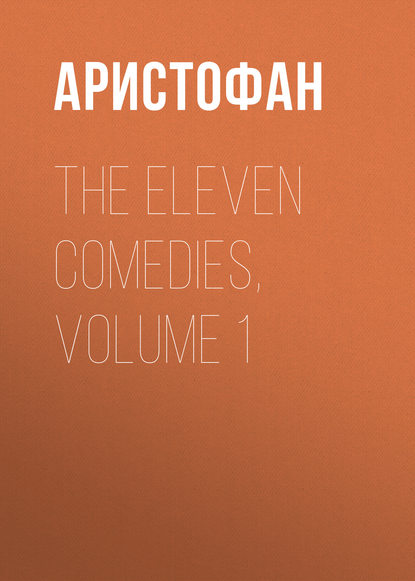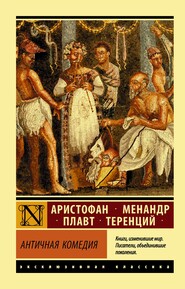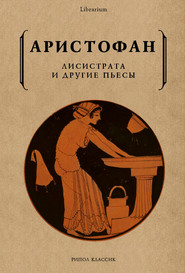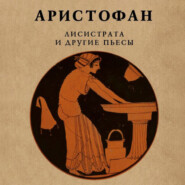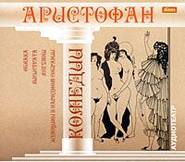По всем вопросам обращайтесь на: info@litportal.ru
(©) 2003-2024.
✖
The Eleven Comedies, Volume 1
Автор
Год написания книги
2018
Настройки чтения
Размер шрифта
Высота строк
Поля
333
Shafts aimed at certain poets, who used their renown as a means of seducing young men to grant them pederastic favours.
334
The poet supplied everything needful for the production of his piece—vases, dresses, masks, etc.
335
Aristophanes was bald himself, it would seem.
336
Carcinus and his three sons were both poets and dancers. (See the closing scene of 'The Wasps.') Perhaps relying little on the literary value of their work, it seems that they sought to please the people by the magnificence of its staging.
337
He had written a piece called 'The Mice,' which he succeeded with great difficulty in getting played, but it met with no success.
338
This passage really follows on the invocation, "Oh, Muse! drive the War," etc., from which indeed it is only divided by the interpolated criticism aimed at Carcinus.
339
The Scholiast informs us that these verses are borrowed from a poet of the sixth century B.C.
340
Sons of Philocles, of the family of Aeschylus, tragic writers, derided by Aristophanes as bad poets and notorious gluttons.
341
The Gorgons were represented with great teeth, and therefore the same name was given to gluttons. The Harpies, to whom the two voracious poets are also compared, were monsters with the face of a woman, the body of a vulture and hooked beak and claws.
342
A tragic and dithyrambic poet, who had written many pieces, which had met with great success at Athens.
343
The shooting stars.
344
That is, men's tools;—we can set her to 'fellate.'
345
It has already been mentioned that the sons of Carcinus were dancers.
346
It was customary at weddings, says Menander, to give the bride a sesame-cake as an emblem of fruitfulness, because sesame is the most fruitful of all seeds.
347
An Attic town on the east coast, noted for a magnificent temple, in which stood the statue of Artemis, which Orestes and Iphigenia had brought from the Tauric Chersonese and also for the Brauronia, festivals that were celebrated every four years in honour of the goddess. This was one of the festivals which the Attic people kept with the greatest pomp, and was an occasion for debauchery.
348
Competitors intending to take part in the great Olympic, Isthmian and other games took with them a tent, wherein to camp in the open. Further, there is an obscene allusion which the actor indicates by gesture, pointing to the girl's privates, signifying there is the lodging where he would fain find a delightful abode. The 'Isthmus' is the perineum, the narrow space betwixt anus and cunnus.
349
He was a 'cunnilingue,' as we gather also from what Aristophanes says of his infamous habits in the 'Knights.'
350
Doubtless the vessels and other sacrificial objects and implements with which Theoria was laden in her character of presiding deity at religious ceremonies.
351
The whole passage is full of obscene double entendres. Theoria throughout is spoken of in words applicable to either of her twofold character—as a sacred, religious feast, and as a lady of pleasure.
352
Where the meats were cooked after sacrifice; Trygaeus points to Theoria's privates, marking the secondary obscene sense he means to convey.
353
"Or otherwise"—that is, with the standing penis. The whole sentence contains a series of allusions to different 'modes of love.'
354
One of the offices of the Prytanes was to introduce those who asked admission to the Senate, but it would seem that none could obtain this favour without payment. Without this, a thousand excuses would be made; for instance, it would be a public holiday, and consequently the Senate could receive no one. As there was some festival nearly every day, he whose purse would not open might have to wait a very long while.
355
This was only offered to lesser deities.
356
In the Greek we have a play upon the similarity of the words, [Greek: bous], a bull, and [Greek: boan], to shout the battle cry.
357
Theagenes, of the Piraeus, a hideous, coarse, debauched and evil-living character of the day.





